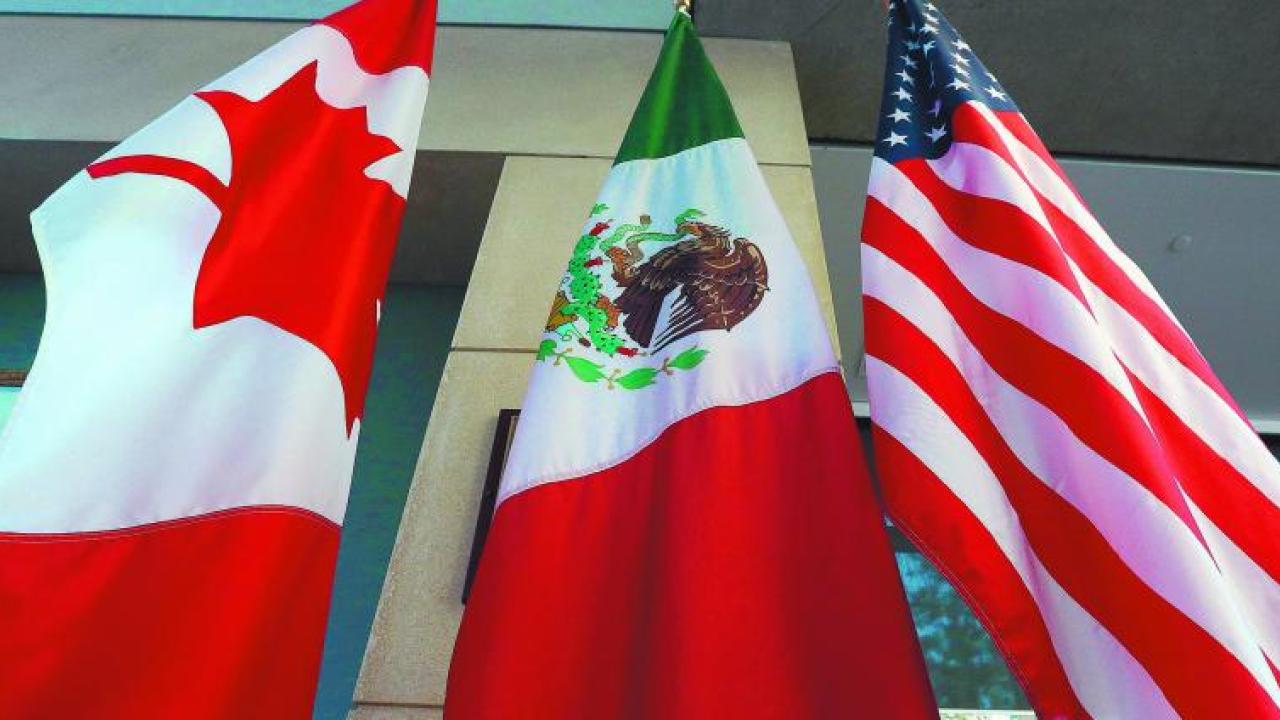
The renewal of the trade agreement for another six years could go beyond 2026 if the next US president decides to take the issue as a bargaining chip to negotiate other issues, Fernando de Mateo said.
With Donald Trump back in the US presidency, the renewal and extension of the United States-Mexico-Canada Agreement (USMCA) risks going beyond 2026.
This is because the Republican government could use the issue as a bargaining chip to obtain more concessions from its partners, even beyond trade, says Fernando de Mateo, former Mexican negotiator of the services chapter of the North American Free Trade Agreement (NAFTA), predecessor of the USMCA.
“The United States will not be interested in having an agreement (in 2026), because what Trump is interested in is maintaining a point of pressure to negotiate other issues, such as migration and fentanyl trafficking,” said in an interview the former Mexican ambassador to the World Trade Organization and current research professor at the Colegio de México.
One of the changes in the USMCA compared to the old NAFTA is its renewal mechanism, which states that the parties agree to review the agreement on the sixth anniversary of its entry into force. That anniversary corresponds to 2026, since it entered into force in July 2020.
If the review decides not to renew an extension, the USMCA would remain in effect for another 10 years (until 2036), but if they decide to renew it, the validity will be extended for another six additional years, for a total of 16 years.
Furthermore, if one of the parties does not confirm its desire to extend the validity of the agreement for another 16-year period, the parties will carry out a joint review of the agreement every year.
“What could happen? We will meet again every year and the extension of the agreement will be postponed every year. And so we could go on for 10 years until 2036 and renew the agreement a little before the deadline,” explained De Mateo.
This would be an undesirable scenario, especially for Mexico, since keeping the extension of the treaty in suspense year after year would reduce the attractiveness of investments, given the uncertainty that the agreement would continue to have a future.
“Every year that passed, Mexico would have a bigger problem with its exports and the investment needed to maintain those exports,” he explained.
In these terms, the challenge for Mexico will be enormous, since our country will likely be the party most interested in having the extension of the agreement agreed upon quickly.
"They will ask for the moon and the stars, and if one of them gives it away, they will ask for more," predicted De Mateo, who, however, expressed his confidence in the capacity of the Mexican negotiating team, which will be headed by the Secretary of Economy Marcelo Ebrard, with the support of the Undersecretaries Luis Rosendo Gutiérrez and Vidal Llerenas.
LESSONS FROM NAFTA
Some reflections on these challenges and on the lessons learned from the NAFTA negotiations will be addressed this Tuesday at the seminar “30 Years of NAFTA and the Future of Integration in North America,” to be held at El Colegio de México and coordinated by Fernando de Mateo and Gustavo Vega.
The event will feature the participation of members of the NAFTA negotiating teams, such as Jaime Serra, former head of the Ministry of Commerce and Industrial Development of the Government of Mexico; Ambassador John Weekes, who was Canada's chief negotiator for NAFTA; and Ambassador Rufus Yerxa, deputy trade representative of the United States government during the NAFTA negotiations.
Jaime Zabludovsky, coordinator of the Mexican Delegation for NAFTA; Luis de la Calle, former Undersecretary of International Trade Negotiations in the Ministry of Economy of the Government of Mexico; and Ambassador Jonathan Fried, as general counsel of the Canadian team during the NAFTA negotiations.









